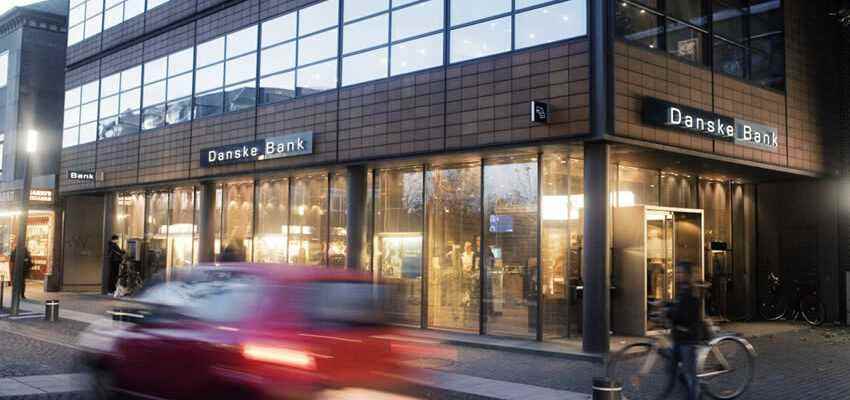The signal is not good. While the quarterly publication season will be launched this week in the United States, with the program several large American banks which will disclose their accounts for the second quarter, Danske Bank, in Europe, has just lowered its net profit forecast for the whole year. The bank, the largest in Denmark, now anticipates a net profit of 10 to 12 billion Danish crowns (1.34 to 1.6 billion euros). In a previous forecast, communicated on February 3, before the start of the war in Ukraine, it aimed for a range of 13 to 15 billion crowns.
“We are revising our full-year net profit guidance due to a significant decline in forecasts for revenue from trading and our insurance businesses”, explained, last night, the general manager, Carsten Egeriis, in a press release. As inflation rages, the world’s central banks are ramming their benchmark interest rates, bond yields are jumping erratically, making market conditions difficult. Trading income and net insurance income will show a combined loss of 500 million crowns.
Expensive market making
Danske (-6% on the Copenhagen Stock Exchange, almost the lowest of the year) is the first of the banks to point out that the rapid increase in interest rates is more of a nuisance for the banking sector than a factor of support, especially for institutions with significant bond market exposure.
“The Nordic fixed income markets have been characterized by extraordinarily high volatility and reduced liquidity, creating a challenging operating environment for the provision of market making services,” said the general manager.
In general, an environment of rising interest rates is considered to be favorable for banks, which lend in the long term by borrowing in the short term, by being remunerated on the rate differential. However, the short rates (those over which the central banks have direct control) are increasing much faster than the long rates which, even worse, have been falling for a few weeks, because of fears of recession.
Volatility, Citi’s “friend”
Danske Bank will publish its second quarter accounts on July 22. The bank posted a lower-than-expected first-quarter profit, citing rising costs and financial market disruptions.
A thousand leagues from the difficulties of the Danish, several large American investment banks have declared that they will announce increased trading income, Citigroup affirming in particular that the volatility, on the market of raw materials and currencies, was ” our friend “, the group selling hedging products to investors. Citigroup will deliver its quarterly copy on Friday.
